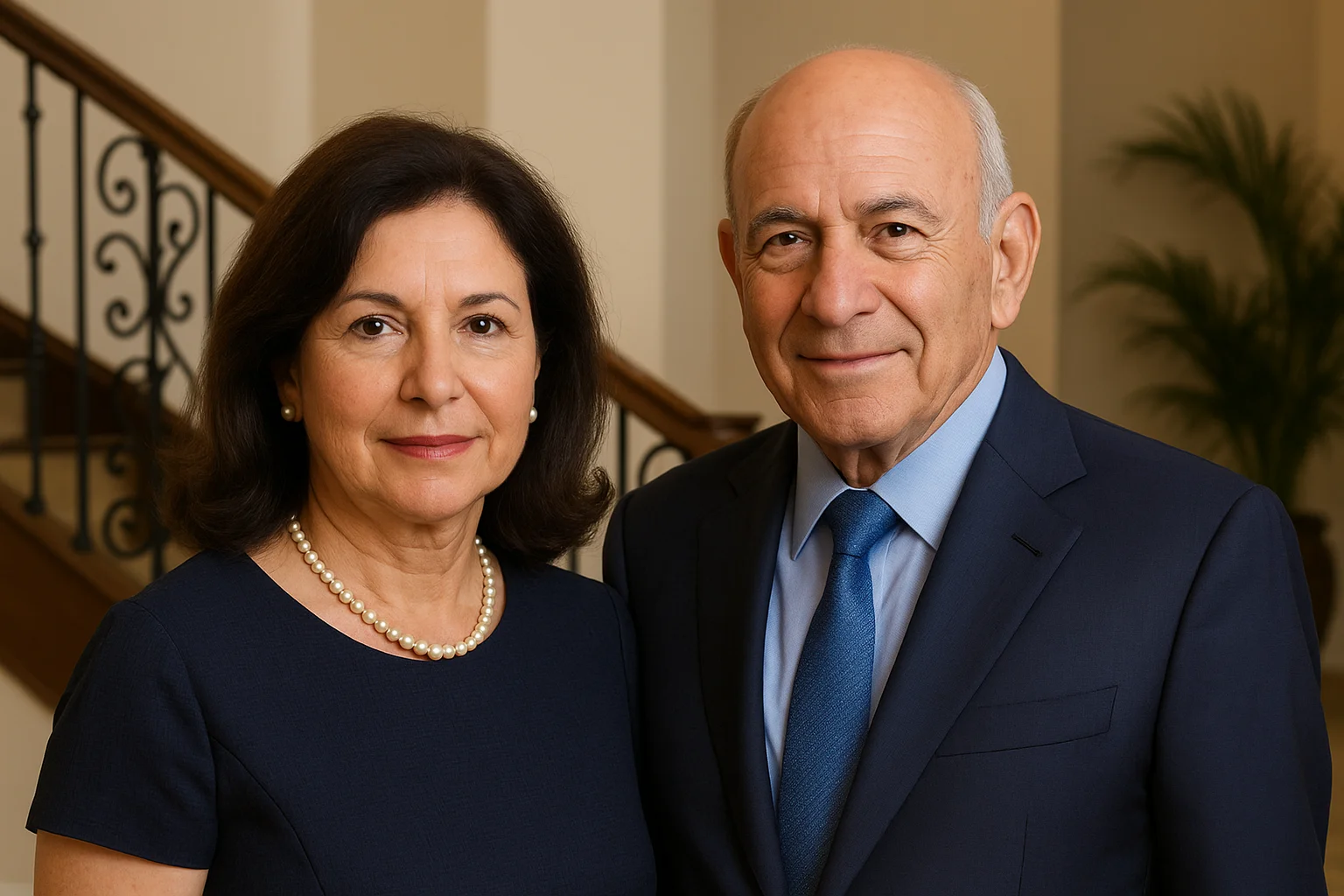Introduction
Behind many successful family businesses there is a partner who prefers privacy to publicity — someone who steadies the family through long hours, hard choices, and public scrutiny. In the story of GL Homes, a company that grew from a modest duplex in 1976 to one of Florida’s largest private homebuilders, Itzhak Ezratti’s wife plays that quiet, stabilizing role. She has largely stayed out of headlines, but her influence can be felt in the family values, charitable priorities, and long-term vision that shaped the company’s culture.
A quiet partner, a strong foundation
Itzhak Ezratti arrived in the United States from Israel and built a life and business through hard work and careful choices. While his entrepreneurial drive is often the focus, his wife’s presence provided a steady home base that allowed him to take risks and invest in growth. She has maintained a low public profile, choosing privacy for the family while supporting priorities that matter: strong family ties, community involvement, and passing down a clear set of values to the next generation.
This kind of behind-the-scenes support is easy to overlook, but it matters. Running a business across decades — through booms, busts, and natural disasters — requires emotional resilience at home. For many business founders, a partner who manages the private, everyday realities of family life creates the space leaders need to focus on strategy and growth.
See also Misha Ezratti Wife – A Complete Guide
Shaping a family business culture
GL Homes is more than revenue and land development; it has a family culture built into its operations. That culture does not emerge by accident. It comes from stories told at the dinner table, expectations set for children, and the values the family models in public life. The wife of a founder often plays a central role in forming those values.
At GL Homes, principles such as integrity, customer focus, and community care are prominent. Those are the kinds of values families reinforce together. When children grow up seeing parents prioritize honest work, fair treatment of employees, and giving back to neighbors, they are more likely to adopt those priorities when leadership passes to the next generation. The family handoff that brought Itzhak’s son into company leadership reflects more than business planning; it reflects a shared ethic.
Guiding philanthropy and community work
A visible strand in GL Homes’ story is philanthropic engagement. Programs that donate household fixtures or support Habitat for Humanity show a company culture that values giving back. While company executives represent these efforts publicly, the family — including the founder’s spouse — often shapes the heart behind them.
Philanthropy that lasts is usually personal. When a family decides to make donations of furniture, appliances, or time, those choices spring from conversations about what matters most. Tellingly, GL Homes’ charitable efforts emphasize housing, hunger relief, and children’s services — causes that connect naturally to a homebuilder’s work and to the kinds of family-centered values many founders’ spouses champion quietly.
Supporting through crises and opportunities
The modern history of GL Homes includes major turning points. Natural disasters such as Hurricane Andrew forced homebuilders in Florida to adapt or perish. For families leading those businesses, the pressure is both professional and personal. Long stretches of rebuilding require leaders to spend relentless days on logistics, permitting, and finance. At home, families need stability and emotional care.
A private partner who holds the home front together during these periods allows leaders to stay focused. Whether it’s managing family needs during weeks of long hours or providing counsel and perspective in harder moments, that support can be a decisive advantage in a company’s ability to endure and prosper.
Passing the baton: continuity across generations
Leadership succession is a key test for any family business. When a founder steps back and a child steps in, the transition tests both business systems and family relationships. GL Homes’ transition of day-to-day leadership to the next generation demonstrates careful planning and shared purpose.
A founder’s spouse often plays a subtle but critical role in that transition: helping the younger generation mature into leadership roles, preserving family cohesion, and modeling how to balance personal and professional responsibilities. The result is not only continuity in ownership but also continuity in the company’s identity and values.
A preference for privacy — and why it matters
Not every contributor to a company’s success needs to be a public figure. In fact, many family partners intentionally choose privacy as a way to protect children, maintain normalcy, and focus energy on meaningful work instead of personal brand-building. That choice can preserve a family’s ability to influence without becoming performative.
Privacy also allows family members to engage with their community on their own terms. They can volunteer, support charities, and host gatherings without the constant glare of media. That normalcy often produces healthier family dynamics and clearer motives behind philanthropic acts.
The human side of legacy
Large companies and long track records can obscure the simple human stories underneath: late-night conversations about ethics, decisions to donate a model home’s furnishings to a family in need, the lessons taught at the dinner table that later guide a CEO’s choices. The founder’s spouse is frequently a guardian of those human stories.
Legacy, in the deepest sense, is not just a balance sheet. It is the sum of values transmitted across generations, the reputation cultivated through daily choices, and the lives touched by intentional giving. In GL Homes’ case, that legacy feels rooted in family-first thinking — a quality often reinforced privately by a spouse who prefers to keep the spotlight on the company’s work instead of her own role.
Conclusion
Itzhak Ezratti’s story is rightly celebrated for its entrepreneurship and the rise of GL Homes. Yet the fuller story includes quieter contributors: the family members who sustained the rhythm of daily life, shaped values, and influenced how the business gave back. The founder’s wife — by choice private, steadfast, and value-driven — represents the kind of behind-the-scenes influence that helps turn hard work into a lasting legacy.
Recognizing that private partnership reminds readers that big businesses are ultimately collections of people with shared commitments. When founders are supported at home, they can take bigger risks, commit to higher standards, and invest in their communities. That support is not always visible in headlines, but it is often the foundation on which success is built.


